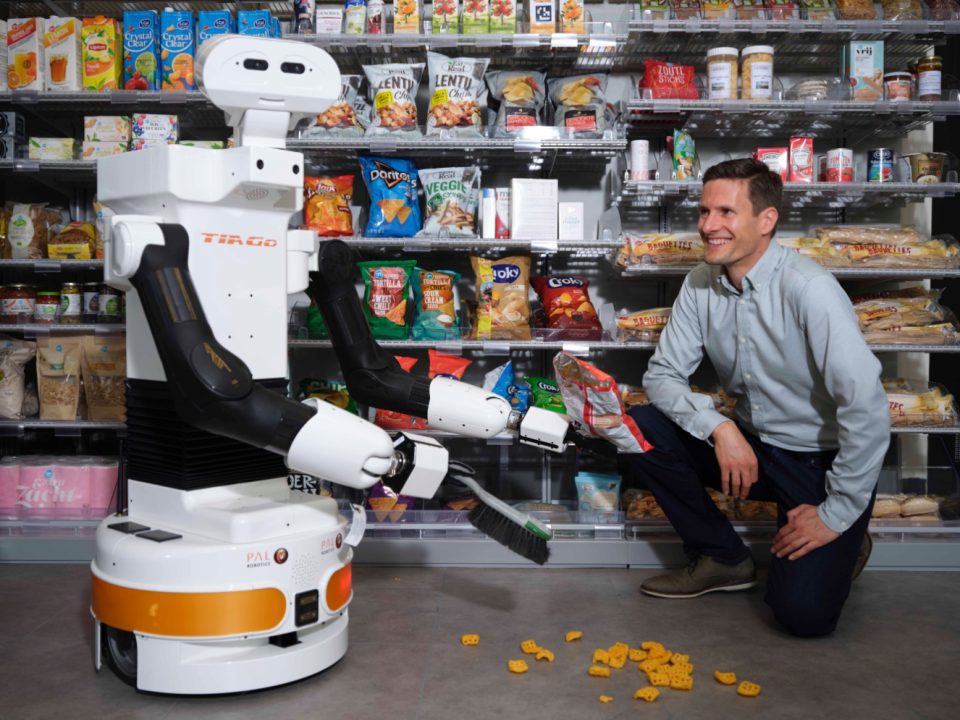The retail industry is undergoing a profound transformation, driven by the rapid advancement of technology. In recent years, the retail tech market has experienced exponential growth, reshaping the way consumers shop, and retailers operate. This article delves into the reasons behind this remarkable expansion and the promising future of retail technology.
The Prolific Rise of Retail Tech
The retail tech market is in the midst of an unprecedented boom. This surge in growth can be attributed to several key factors:
- E-commerce Revolution: The explosion of e-commerce platforms has been a game-changer. As more consumers turn to online shopping, retailers are investing heavily in technologies that enhance the digital shopping experience, from user-friendly websites and mobile apps to advanced recommendation engines.
- Omnichannel Retailing: Retailers are increasingly embracing omnichannel strategies, blurring the lines between online and physical stores. Technologies like in-store beacons, augmented reality, and inventory management systems have facilitated this convergence, allowing consumers to shop seamlessly across multiple channels.
- AI and Machine Learning: Artificial intelligence and machine learning have revolutionized retail tech. These technologies enable retailers to personalize marketing, optimize supply chain management, and predict consumer preferences with remarkable accuracy. Chatbots and virtual shopping assistants powered by AI are becoming commonplace, providing 24/7 customer support.
- Payment Innovations: Contactless payments, mobile wallets, and cryptocurrencies have revolutionized how consumers make payments. Retailers have adapted by integrating various payment options, offering convenience and security.
- Data Analytics: Retailers now have access to an unprecedented amount of data about consumer behavior. Analytics tools help them make informed decisions, refine their marketing strategies, and offer more personalized shopping experiences.
- Inventory Management: The adoption of inventory management systems, RFID technology, and IoT devices has improved inventory accuracy, reduced stockouts, and enhanced supply chain efficiency. Retailers can now offer more dependable product availability to customers.
- Sustainability and Ethical Practices: Consumers are increasingly concerned about the ethical and environmental aspects of the products they purchase. Retail tech is being used to trace the origins of products, ensure ethical sourcing, and reduce the carbon footprint of retail operations.
- Smart Stores: Retail tech is turning physical stores into smart stores. Smart shelves, automated checkout systems, and IoT-driven store management have enhanced the in-store experience, reducing friction and enhancing convenience.
The Future of Retail Tech
The retail tech market shows no signs of slowing down, and its future is filled with promise. Here’s what we can expect:
- Hyper-Personalization: AI-driven personalization will continue to evolve, offering consumers highly tailored shopping experiences.
- Sustainable Practices: Sustainability will remain a significant focus in the retail industry, with technology playing a pivotal role in transparency and responsible sourcing.
- Augmented Reality (AR) and Virtual Reality (VR): AR and VR technologies will transform how consumers shop by providing immersive and interactive experiences.
- 5G Connectivity: The rollout of 5G will enable faster, more responsive online shopping experiences and support technologies like IoT and augmented reality.
- Blockchain: Blockchain technology will be used for secure transactions and to verify the authenticity of products.
- Voice Commerce: Voice-activated devices and virtual assistants will become more integrated into the shopping process.
- Robotics: Retailers will explore robotics for tasks like warehousing, inventory management, and customer service.
Conclusion
The exponential growth of the retail tech market is a testament to the industry’s adaptability and its commitment to meeting the evolving needs of consumers. As technology continues to advance, consumers can look forward to more personalized, convenient, and sustainable shopping experiences, whether online or in-store. The future of retail tech is a bright one, offering a win-win scenario for both retailers and shoppers alike.



